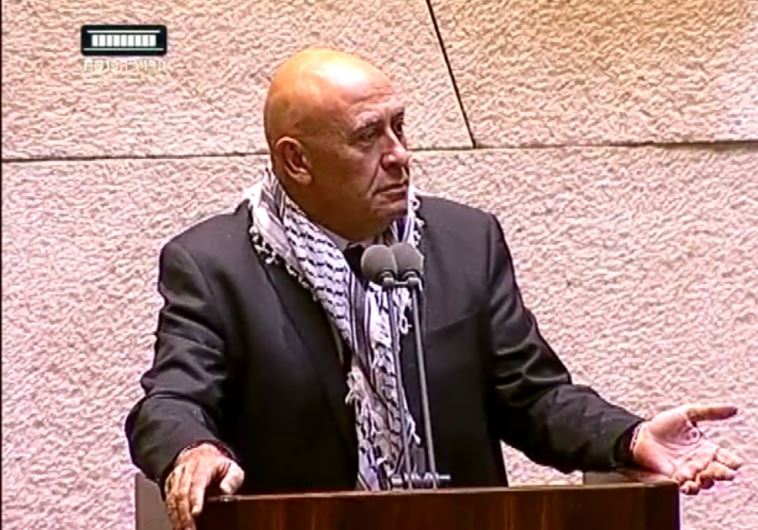Arab MK Ghattas stripped of immunity in terrorist phone smuggling affair
Police found 12 cellphones and 16 SIM cards on two Palestinian security prisoners in the Ketziot Prison in the Negev after Ghattas had visited them.
 (photo credit: KNESSET CHANNEL)Updated:
(photo credit: KNESSET CHANNEL)Updated: